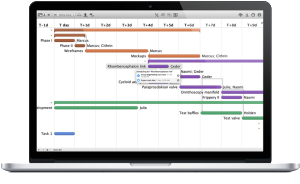 When I was in high school, I learned a few programming languages. In one class, we were given a new assignment nearly every day. Whenever I would get stuck, I would ask the teacher for help. His answer became very predictable.
When I was in high school, I learned a few programming languages. In one class, we were given a new assignment nearly every day. Whenever I would get stuck, I would ask the teacher for help. His answer became very predictable.
He who learns for himself learns seven fold of he who is told
Argh. Look man, all I really needed was a simple answer, not a philosophy lesson. As it turns out, he was right.
Get the Answer, or Learn to Learn?
In the moment of feeling stuck, having a leader unwilling to bail you out is so frustrating. Looking back, I value those people the most in my life, whether they be teachers, friends, mentors, or strangers. As a result of those frustrating moments, I have developed an attitude in life of, “I can figure this out…I can learn this if I just ask the right questions.” Of course, that doesn’t always work, but it gets me a lot further down the road than waiting for someone to give me the answer. I have adopted a similar strategy now that I have others to lead.
Why You Should Frustrate Them
As I have watched people on my team, or my family, get frustrated with me, I have had to reflect on why I am doing this. Is it just because I am mean?
- It is fun to watch you struggle. Ok, that sounds sinister, but what I really mean is that I love to see people dig deep and create some new thinking patterns that will get them out of this situation. While they struggle, stay close and nudge them along…without giving away too much.
- I care more about you than the answer. This is the big one. As a leader, it is my job to grow people more than anything. It is not my primary role to grow the business, take care of the customer, or ensure profitability. Those things are important, but all secondary to growing people to be better, smarter, faster, more confident, and more valuable to the world. The best way I know how to do that is to help them learn to learn. When I feel bad about watching someone wrestle with a problem, I have to remind both of us, “I care more about you, and your ability to learn, than I do the time it takes or quality of the solution.”
- It exposes my leadership failures. Yay! Let’s all look at how I have let you down and failed to equip you…what fun. Although not always pleasant, exposing where I have failed to communicate, teach, guide, or lead helps me to learn in the situation. At the highest level this has taught me that every time a protegé is struggling, I have something to learn.
Part of my philosophy of leadership is a job well done renders me useless. I want to invest in people and the process so thoroughly that I am not required to solve a problem. They have the tools they need to do a great job. This is often referred to the “hit by a bus” strategy. I love to be called on because I am the best one to solve a problem. I get very discouraged when I am the only one who can solve a problem.
Your Next Move
Look for opportunities to promote the ability to learn in those around you. Choose one problem this week and change the way you help. Walk them through learning rather than give them the answer. If you get push back, send them here to read this.



